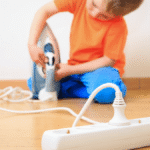Here are some tips and coping strategies with quarantine cough:
- Stay hydrated: Drinking plenty of water and other fluids can help to thin out mucus and relieve coughing. Aim to drink at least eight glasses of water per day.
- Use a humidifier: A humidifier can help to soothe your cough and relieve congestion by adding moisture to the air. Make sure to clean your humidifier regularly to prevent the growth of bacteria and mold during quarantinedcoof.
- Try over-the-counter cough medicines: Cough syrups and cough drops can help to suppress coughing and soothe your throat. Make sure to follow the instructions on the package and consult with your doctor if you have any questions.
- Use a saltwater gargle: Gargling with saltwater can help to reduce inflammation in your throat and provide temporary relief from coughing. Mix one teaspoon of salt in a glass of warm water and gargle for 30 seconds before spitting out.
- Rest and relax: Make sure to get plenty of rest and avoid overexerting yourself, as this can make your cough worse. Practice relaxation techniques such as deep breathing or meditation to help reduce stress and promote relaxation.
- Stay away from triggers: If you have allergies or asthma, make sure to avoid triggers such as pollen, smoke, and pet dander. These can exacerbate your cough and make it more difficult to breathe.
- Seek medical advice: If your cough persists for more than a week or if you experience other symptoms such as chest pain or difficulty breathing, make sure to consult with your doctor. They can help to diagnose the underlying cause of your cough and provide appropriate treatment.
Stay Hydrated:
Use A Humidifier:
When using a humidifier, it is important to clean it regularly to prevent the growth of mold and bacteria. Follow the manufacturer’s instructions for cleaning and replacing the filter, and use distilled water instead of tap water to avoid mineral buildup. Additionally, make sure to keep the humidity level between 30 and 50 percent to prevent excess moisture and mold growth. Overall, using a humidifier can be a helpful tool in managing a quarantine cough and promoting overall respiratory health.
Try Over-The-Counter Cough Medicines:
When using OTC cough medicines, it is important to read the label carefully and follow the recommended dosage instructions. Some cough medicines may contain multiple active ingredients, so be sure to check for potential drug interactions or allergies. Additionally, if you have other medical conditions or are taking prescription medication, be sure to consult with your healthcare provider before using OTC cough medicines.
While OTC cough medicines can be helpful in managing a quarantine cough, they may not be effective for all types of coughs, such as those caused by allergies or asthma. It is always a good idea to consult with your healthcare provider if your cough persists or becomes more severe. They can help to diagnose the underlying cause of your cough and recommend appropriate treatment options.
Use A Saltwater Gargle:
To use a saltwater gargle, mix 1/2 to 3/4 teaspoon of salt into a cup of warm water and stir until the salt dissolves. Take a sip of the solution and tilt your head back, allowing the mixture to reach the back of your throat. Gargle for 30 seconds before spitting out the solution. Repeat this process several times a day, as needed.
It is important to note that a saltwater gargle is not a substitute for medical treatment. If your cough persists or becomes more severe, it is important to consult with a healthcare professional. Additionally, if you have high blood pressure or other medical conditions that may be affected by salt intake, be sure to consult with your healthcare provider before using a saltwater gargle.
Rest And Relax:
It is important to prioritize sleep and aim for at least 7-9 hours of sleep per night. Avoid caffeine and electronic devices before bedtime, as these can interfere with sleep quality. Additionally, try to reduce stress and practice relaxation techniques, such as deep breathing or meditation. Stress can weaken the immune system and make it more difficult for your body to fight off infections.
If your cough is interfering with your ability to rest and relax, you may want to consider taking a cough suppressant medication before bedtime, as recommended by your healthcare provider. This can help to reduce coughing and improve sleep quality. However, it is important to use these medications only as directed and to avoid relying on them for long-term cough relief.
Stay Away From Triggers:
If you are sensitive to smoke or air pollution, try to stay indoors and keep windows closed when air quality is poor. Use an air purifier or humidifier to help filter the air and maintain a comfortable humidity level. If you are allergic to pet dander or dust, try to keep your home clean and dust-free, and consider using allergy-proof bedding and vacuum cleaners.
Additionally, be mindful of any foods or drinks that may trigger your cough, such as cold or spicy foods, or acidic drinks like citrus juice or soda. If you notice that certain foods or drinks worsen your cough, try to avoid them or limit your intake.
Overall, staying away from triggers that can worsen your cough can help to reduce symptoms and promote healing. If you are unsure about what triggers your cough, or if your cough persists or becomes more severe, be sure to consult with your healthcare provider.
Seek Medical Advice:
If your cough persists for more than a few weeks, or if you experience additional symptoms such as fever, chest pain, difficulty breathing, or coughing up blood, it is important to seek medical advice as soon as possible. Your healthcare provider can perform a physical exam, review your medical history, and recommend appropriate diagnostic tests, such as chest X-rays or blood tests, to help determine the underlying cause of your cough.
In addition to medical treatment, your healthcare provider may recommend lifestyle changes, such as quitting smoking, avoiding allergens or irritants, or practicing good hand hygiene, to help manage your cough and prevent the spread of infection to others.
Medications:
- Cough suppressants: Cough suppressants, also known as antitussives, can help to reduce coughing by blocking the cough reflex. These medications are often used to help manage dry, non-productive coughs. Examples include dextromethorphan and codeine.
- Expectorants: Expectorants can help to thin and loosen mucus in the airways, making it easier to cough up. These medications are often used to help manage productive coughs. Examples include guaifenesin.
- Bronchodilators: Bronchodilators can help to relax the muscles in the airways, making it easier to breathe. These medications are often used to help manage coughs associated with asthma or other respiratory conditions. Examples include albuterol and salmeterol.
- Steroids: Steroids can help to reduce inflammation in the airways, which can help to relieve coughing and other respiratory symptoms. These medications are often used to help manage coughs associated with allergies, asthma, or other inflammatory conditions. Examples include prednisone and fluticasone.
It is important to note that all medications have potential side effects and may not be appropriate for everyone. Always consult with your healthcare provider before taking any medication, and follow the recommended dosage and instructions carefully. Additionally, if your cough persists or becomes more severe despite treatment, it is important to consult with your healthcare provider for further evaluation and management.
Signs And Symptoms:
- Cough: The most common symptom of a quarantine cough is coughing, which can be dry or productive (producing mucus).
- Sore throat: A sore throat is another common symptom of a quarantine cough. It may be accompanied by pain or discomfort when swallowing.
- Congestion: Congestion, or a feeling of tightness in the chest or lungs, is also common with a quarantine cough. This can make it difficult to breathe or take deep breaths.
- Runny nose: A runny nose may be present in some cases, especially if the cough is caused by a cold or other respiratory infection.
- Fatigue: Coughing can be exhausting and may lead to fatigue or a lack of energy.
- Headache: Some people with a quarantine cough may experience headaches or sinus pressure.
- Fever: A fever may be present in some cases, especially if the cough is caused by a bacterial infection such as pneumonia.
It is important to note that some people with a quarantine cough may have no symptoms at all, or may only experience mild symptoms. If you are experiencing any symptoms of a quarantine cough, it is important to follow medical advice and take steps to manage your symptoms and prevent the spread of infection to others.











